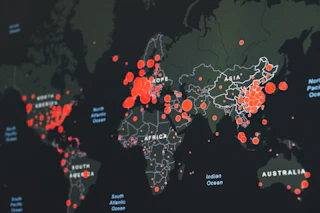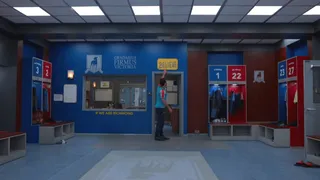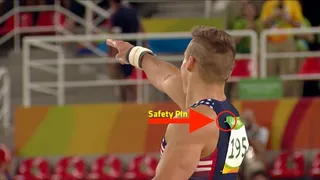Stop Creating a Minimum Viable Product
As creators, we should strive to share our best with the world

I asked Pierce Brown at a book signing what it took to complete the fifth book in his Red Rising series, Dark Age. He answered, “cutting it down from about 1,100 pages in editing” At 800 pages published, the book is a massively dark and complex penultimate issue of his six-part series.
Recently, Pierce shared a similar story on Instagram. He’s currently writing the final book in the series and ran into a bit of a roadblock. He shared:
A little update on book #6. The chisel is at work and has been since the last update. Radical honesty: I initially set off on a path that led me deep into thistles and brambles. Hacked through them with sweat and toil only to find fearsome dead eyed beasts waiting just on the other side. All that to say: I chose the wrong damn path. I’m a stubborn shit who sometimes mistakes hard work for good work, and doesn’t enjoying being dead wrong. But the story did feel wrong. Eventually, I sacked up and tossed 200+ pages in the bin, and found the right and true path through to the saga’s conclusion. I’m well along that path now, but more moons must fall, more planets burn, and more heroes brood before this book’s ready to make you feel all the stuff. Thanks for your patience. Will have more info when I’ve got this bastard where I want him.
It’s hard to admit when we’re wrong. Especially when we’re wrong about something we’ve poured our life into creating. Yet, Pierce’s example shows that sometimes we have to hit delete on things we care about because they aren’t right, or they’re not the best they possibly can be.
We publish all sorts of writing advice for The Writing Cooperative community. Not every writer will resonate with every piece of advice, but if it works for someone, it will work for others, so we try to share a wide breadth of ideas and techniques. One trend I see emerging lately, primarily among content writers, is adopting the minimum viable product method of creating.
Minimum viable product is adopted from start-up culture and means getting the bare bones of a thing to market because you can always update and add to it later. It forces the creator to stop overthinking and ship products into the world. The idea makes sense if you’re talking about software, but I don’t think it works for writers.
When writing, there is no minimum viable product. There’s every draft and revision, and then there’s the final draft — the thing shared with the world. Yes, article writers can make corrections and edits after the fact, but rarely does that occur. Pierce Brown cannot release a minimum viable version of his book and then come back a few months later with an update, deleting chapters, and adding new ones. Writing doesn’t work this way.
Revising drafts is probably the least exciting part of writing. That’s part of why the minimum viable product method is so appealing. Writers adopting this technique are solely focused on producing and sharing, banking on the idea that quantity wins in a constantly connected culture.
However, editing and revising drafts is where new ideas develop. Cleaning up drafts discovers stories stuck on the wrong path or places where edits can strengthen points. Editing removes minimum from a minimum viable product.
As creators, we should strive to share our best with the world. If that means there’s a bit of time between what we publish, then so be it. I’d rather release things I’m proud of, things that are of quality and accurately reflect who I am.
How about you? Are you willing to delay a release to ensure the quality is to your standards? Hit reply and let me know.
Related Reads
The Perils of Personal Platforms
• PublishingWhat does it actually mean to leave the world of commercial platforms behind?
Celebrating a Decade on Medium
• Featured • PublishingLooking back at the past ten years of writing on Medium and what comes next.
Expanding Universes Make Better Stories
• CultureThis Week In Writing, we look at how worldbuilding is an essential part of epic storytelling.
This Just in: Horizontal Skyscraper City Coming Soon to the Desert
• LifeEvery post-apocalyptic movie ever made will soon culminate in the Saudi Arabian horizontal skyscraper city.
Write Now is My Tribe of Mentors
• CraftWhat I learned from Tim Ferriss’ Tribe of Mentors and my answers to his 11 great questions.
Stop Creating a Minimum Viable Product
• CraftAs creators, we should strive to share our best with the world
Creative Burnout and Why I’m Pausing The Writing Cooperative After 12 Years
• Featured • EditorialAlysa Liu's story is relatable and the timing is impeccable.
What Bad Bunny Gets That NBC Doesn’t
• CultureThis Just In: NBC hosted the Olympics, the Super Bowl, and Bad Bunny’s halftime show on the same night, so why was their messaging so poor?
AI Is Not an All or Nothing Choice
• Featured • AIThis Just In: AI use isn't a moral binary. There's a practical middle path for writers.
It’s the End of the Year as We Know It (and I Feel Tired)
• LifeThis Just In: It’s time to look back at the year that was and set up some hopes and dreams for the year to come, or something like that.
Unchecked Writing
• AIThis Just In: I stopped using Grammarly; have you noticed? Plus, a deeper exploration into AI writing and my friend the em dash.
It’s Not All About the Benjamins
• PublishingThis Just In: Yet one more thing that Diddy was wrong about.
Want to Write a Novel in November?
• CraftThis Just In: NaNoWriMo may be dead, but writers have two new options to help hit those writing goals.
Answers to a Few Questions
• CraftThis Just In: There were fewer questions than I anticipated, but I will answer them nonetheless.
What Questions Do You Have
• CraftThis Just In: I won’t be participating in Medium Day this year, but I still want to keep the spirit alive. Ask me anything.
What I Did Different With This Book
• PublishingThis Just In: Launching a second edition wasn’t as simple as I thought it’d be, and I learned some lessons along the way.
Introducing Write Now’s Revised Second Edition!
• Featured • PublishingThis Just In: You can now access everything I’ve learned writing online over the last two-plus decades. Are you ready for it?
Let’s Talk About Tools
• TechThis Just In: There’s no single tool that can do everything and it’s extremely frustrating.
Battle of the Book Builders
• TechThis Just In: I tried to format my book using Vellum and Atticus. Instead, I learned something about app design and limitations.
Does My Journal Need a Backup
• TechThis Just In: I took a lot of your suggestions to heart and gave Obsidian a try. What I found was a bigger question.
Journals Aren’t Forever
• TechThis Just In: After over 13 years, I’ve deleted the Day One journal app. Here’s what it helped me realize about software subscriptions.
AI Exposes the Deeper Rifts in the Writing Industry
• AIThis Just In: Monetization turns passions into sweatshops and AI is making it worse.
AI Killed NaNoWriMo
• AIThis Just In: The writing month challenge may be dead, but there’s a new option to keep writers going.
A Few More Thoughts on Copyright
• AIThis Just In: The history of copyright might be fraught, but it exposes a bigger issue when creating online.
Copyright in the Age of AI
• AIThis Just In: What does copyright do and does it even matter anymore?
The Forthcoming First Amendment Fight
• CraftThis Just In: So-called defenders of free speech are taking office, and we’re all in trouble. Plus, more predictions for 2025.
Is Reading Dying
• CraftThis Just In: AI summaries and the pivot to video are bad news for the written word.
Are Apple’s Writing Tools the Right Stuff
• AIThis Just In: Apple Intelligence offers the boring version of AI I’ve hoped for, but is it helpful for writers?
This One’s for the Fans
• CultureThis Just In: Jimmy Buffet gets the due he deserves and shows what creative passion is all about.
When Creating Stops Being Fun
• CraftThis Just In: knowing when (and how) to hit delete is important for every creator’s sanity.
When Gamification Goes Awry
• TechWriting days, health rings, Duolingo… there are more streaks than time.
Medium Day 2024: Questions I Didn't Have Time to Answer
• PublishingA collection of all the questions I didn’t have time for during my 30-minute Medium Day presentation.
Our Words Are Our Legacy
• CraftCreativity is a clash between individualism and our connection to history.
Fandom Is Being Ruined by "Fans"
• Featured • CultureHow review-bombing and constant, unfounded criticism takes agency away from creators
Maybe I’m Bad at Social Media
• Social MediaSocial media “growth” requires giving in to quantity over quality. I don’t play that game.
Chase Your Dreams and See What Happens
• LifeThis Just In: Mental health is a massive part of confidence and success. Dreams are inspiration. Use them.
Generative AI in Creativity
• AIThe reader survey results have some interesting things to say about generative AI and creativity. Here’s why that’s a problem.
Why Criticize When You Can Celebrate?
• Featured • CraftThe attention economy destroyed our ability to dream for the sake of page views. It’s time we refocus our attention.
Write Like Taylor Swift
• CultureEmbrace life’s many eras and stop trying to be a one-dimensional writer.
Metrics Don’t Matter
• CraftHave we become so accustomed to seeing metrics everywhere that they no longer mean anything?
Celebrating a Decade on Medium
• Featured • PublishingLooking back at the past ten years of writing on Medium and what comes next.
Creation and Destruction Are Connected
• CraftThis Just In: The act of creating something is more important than the act of publishing what is made.
Don’t Take My Word for It
• CraftThis Just In: Personalized recommendations are the new algorithms and the best way to build a true audience.
Why Is Branding So Difficult?
• PublishingThis Just In: This Week In Writing rebrands; still explores the world with creativity and curiosity.
Why Make Anything if You Don’t Think It Will Be Great?
• CraftThis Week In Writing, we discuss greatness and how chasing it is a possible and noble goal.
Let's Make the Internet Personal Again
• Featured • PublishingThis Week In Writing, we look at the once-in-a-generation opportunity to create a new internet filled with fun and originality.
Advent, Waiting, and the Year of Transitions
• LifeThis Week In Writing, we look back at the year that was and determine what it means for the year to come.
Refilling the Creativity Tank
• LifeThis Week In Writing, we discuss what happens when creativity finds other outlets.
Trick or Treat?
• CraftThis Week In Writing, we talk about pen names and whether they make sense for writers.
A New Era Begins
• PublishingThis Week In Writing, we explore the internet’s current metamorphosis and how you can be part of the revolution.
My History of Blogging
• PublishingThis Week In Writing, we celebrate the blog, explore the pendulum of online writing, and double down on quality.
How I Feel About Engagement Numbers
• PublishingThis Week In Writing, we discuss what engagement means and if I get discouraged by a perceived lack thereof. Plus, a look at the future (again).
My Writing Is About Building Community
• PublishingThis Week In Writing, we highlight some of the people I’ve met writing online and answer some of your questions.
It’s Time for a Fresh Start
• PublishingThis Week In Writing, we talk about new Apple products, home renovations, and changes to the newsletter.
Choose Your Own Design
• PublishingThis Week In Writing, we explore the wonderful world of blogs, where writers truly get creative.
Expanding Universes Make Better Stories
• CultureThis Week In Writing, we look at how worldbuilding is an essential part of epic storytelling.
Your Questions Answered
• EditorialThis Week In Writing, we recap a successful Medium Day and address some of the questions I didn’t have time to answer.
Saving Frequently Isn’t The Only Way To Backup Your Writing
• CraftThis Week In Writing, we take a hard lesson from the latest Twitter/X hijinks. Plus, we look at what “human writing” means.
MIT Says ChatGPT Improves Bad Writing, But At What Cost?
• AIThis Week In Writing, we explore how ChatGPT and Grammarly are making us all sound the same.
Do CTAs Even Work Anymore?
• PublishingThis Week In Writing, we explore the “necessary evil” of calls to action and ask if they are any better than tacky banner ads.
My Ghostly Strategy: Avoid the Graveyard
• PublishingThis Week In Writing, we fully explore how I’m building Ghost into a self-hosted content hub and how you can too.
This Just in Comes Home
• PublishingWelcome to the first issue of This Just In completely managed from my website!
How Do You End Things Well
• CultureSuccession and Ted Lasso ended last week. Both had a distinct impact on culture and were met with intense anticipation despite relatively small audiences. Don't worry, there aren't any real spoilers in this article. I enjoyed both endings for different reasons. Succession brought a sense of
My Return to Journaling Failed Miserably
• LifeThis Week In Writing, we talk about good intentions, rumored Apple products, and buying domain names
Let's Talk About Numbers
• PublishingThis Week In Writing, we talk about the importance of metrics and why I barely pay attention to mine.
ChatGPT, the Writer’s Strike, and the Future of Content Writing
• AIThis Week In Writing, we explore a middle-of-the-road approach to ChatGPT and the future of writing
BlueSky, Mastodon, and Notes; Oh, My!
• Social MediaThis Week In Writing, we talk about all the “Twitter Alternatives” and what makes the most sense for writers.
On Tennis and Writing Breaks
• LifeThis Week In Writing, I discuss my prolonged break from daily writing and follow up on last week’s Substack article.
Stop Creating Quantity and Start Creating Quality
• EditorialThis Week In Writing, we discuss Medium’s new Boost program and why the vast majority of submissions lately have been atrocious.
How I Use Midjourney to Create Featured Images for Articles
• AIGenerating unique and interesting featured images, you only need a Discord account and a little patience. Here’s how I use the tool.
You Have Questions, I May Have Answers
• CraftThis Week In Writing, we celebrate International Question Day by listening to Selena Gomez. What does that have in common? Keep reading!
AI Is Coming for Content Creators
• AIThis Week In Writing, we look at how AI is changing the content landscape and why that might be a good thing.
The Era of Centralized Platforms Is Over
• Featured • PublishingThis Week In Writing, we discuss whether you should still own a website if you publish on Medium or Substack.
How Will History Remember Your Writing?
• CraftThis Week In Writing, we talk about the magic found in old books
How I Come Up With Writing Topics
• CultureThis Week In Writing, we explore topic generation while celebrating the best damn band in the land!
Introducing My Writing Community!
• EditorialA new way to connect with writers, discuss your interests, and receive feedback on your creative endeavors.
Are You Begging for Eyes in the Attention Economy
• Featured • PublishingThis Week In Writing, we explore the internet’s move away from the attention economy and how writers can make the web more personal
Use Better Words to Be More Inclusive
• CraftThis Week In Writing, we talk about words to avoid in 2023, a special offer from a friend, and Medium joining Mastodon
What Biases Do You Bring to Your Projects
• CraftThis Week In Writing, we explore biases in our creative pursuits and how those biases can translate to AI-generated content.
Welcome to 2023. Now Take A Nap.
• CraftThis Week In Writing, we kick off a new year with a chat about goals, self-care, and naps.
I Created a New Language in 5th Grade
• LifeThis Week In Writing, we explore our digital legacies, discuss permanence, and close out the year with something new.
What’s the Last Book You Read
• Crafthttps://writingcooperative.com/whats-the-last-book-you-read-5265b44e180e
Success Comes to Those Who Work for It (Usually)
• CraftThis Week In Writing, we talk about success and perseverance through the lens of Simu Liu’s memoir. Oh, and AI writing, too.
Would You Burn Your Entire Archive
• CraftThis Week In Writing, we contemplate throwing out our leftovers and slimming down our digital presence.
Give Thanks to Our AI Overlords
• AIThis Week In Writing, we celebrate Thanksgiving and dive into the ever-improving AI-generated content.
Do You Procrastawrite
• CraftThis Week In Writing, we talk about procrastination and everything we do instead of writing.
Let’s Talk About Money
• FreelancingThis Week In Writing, we talk about earning money as a writer online and check in on NaNoWriMo.
Happy Author’s Day
• CraftThis Week In Writing, we kick off NaNoWriMo by celebrating all the author’s out there, whether published or not.
You’re Invited
• CraftThis Week In Writing, we prepare for NaNoWriMo with a special invitation, but first, we talk about She-Hulk!
Get Ready for NaNoWriMo
• CraftThis Week In Writing, we prepare for National Novel Writing Month (NaNoWriMo) with encouragement and a special offer.
How Do You Deliver Joy
• CraftThis Week In Writing, we discuss how to find your joy and how to spread joy to others.
Let’s Taco ‘Bout Giving the Reader More
• CraftThis Week In Writing, we celebrate National Taco Day by discussing ways to hook the reader and give them more to chew on.
Stop Making Excuses and Write
• CraftThis Week In Writing, we explore excuses we use to avoid writing and discuss methods to get out of our own way.
Did You Hug Your Boss Today?
• CraftThis Week In Writing, we explore inappropriate workplace dynamics and how that applies to writers.
How Do You Fight Procrastination?
• CraftThis Week In Writing, we explore the bane of most writers’ existence: procrastination. And, yes, it’s different from Writer’s Block.
This Just In: Thank You, Subscribers
• PublishingI don’t know who you are, but I’m grateful for your support, and I hope you enjoy all the things you read.
What Word Makes You Cringe?
• CraftThis Week In Writing, we talk about cringe-worthy words and give a nod to puns, courtesy of Letterkenny.
This Is a Bit Revealing
• CraftThis Week In Writing, I reveal my inner nerd by sharing a personal project. Plus, we look at character creation.
The Stats I Track
• CraftThis Week In Writing, we explore which stats are necessary to track and which are safe to ignore.
Do You Color Outside the Lines?
• CraftThis Week In Writing, we explore taking our writing to places the reader doesn’t expect, like in the film Everything Everywhere All At Once.
Writing Is Exploring The Unknown
• CraftThis Week In Writing, we explore all-or-nothing thinking and learn how to live in the unknown within our work and ourselves.
Write Now is My Tribe of Mentors
• CraftWhat I learned from Tim Ferriss’ Tribe of Mentors and my answers to his 11 great questions.
When Writing Gets Controversial
• CraftThis Week In Writing, we explore the controversial origins of the bikini and how our writing can stoke controversy of its own.
Make Your Writing Space More Comfortable
• CraftThis Month In Writing, we explore simple ways to improve your writing space and the best advice published in June.
Creative Burnout and Why I’m Pausing The Writing Cooperative After 12 Years
• Featured • EditorialAlysa Liu's story is relatable and the timing is impeccable.
What Bad Bunny Gets That NBC Doesn’t
• CultureThis Just In: NBC hosted the Olympics, the Super Bowl, and Bad Bunny’s halftime show on the same night, so why was their messaging so poor?
AI Is Not an All or Nothing Choice
• Featured • AIThis Just In: AI use isn't a moral binary. There's a practical middle path for writers.
It’s the End of the Year as We Know It (and I Feel Tired)
• LifeThis Just In: It’s time to look back at the year that was and set up some hopes and dreams for the year to come, or something like that.
Unchecked Writing
• AIThis Just In: I stopped using Grammarly; have you noticed? Plus, a deeper exploration into AI writing and my friend the em dash.
The Dream of EPCOT
• LifeThis Just In: Walt Disney’s community of tomorrow is a celebration of humanity and a prototype for how we should live. Maybe we should listen.
It’s Not All About the Benjamins
• PublishingThis Just In: Yet one more thing that Diddy was wrong about.
The Internet Was Doomed From the Start
• Featured • PublishingThis Just In: Maybe it’s time to rethink the entire internet.
Want to Write a Novel in November?
• CraftThis Just In: NaNoWriMo may be dead, but writers have two new options to help hit those writing goals.
Answers to a Few Questions
• CraftThis Just In: There were fewer questions than I anticipated, but I will answer them nonetheless.
What Questions Do You Have
• CraftThis Just In: I won’t be participating in Medium Day this year, but I still want to keep the spirit alive. Ask me anything.
What I Did Different With This Book
• PublishingThis Just In: Launching a second edition wasn’t as simple as I thought it’d be, and I learned some lessons along the way.
Introducing Write Now’s Revised Second Edition!
• Featured • PublishingThis Just In: You can now access everything I’ve learned writing online over the last two-plus decades. Are you ready for it?
Can We Talk About Comments?
• PublishingThis Just In: Hearing from readers is a lot of fun until you start to get spammed with bots and AI nonsense farming for attention.
Let’s Talk About Tools
• TechThis Just In: There’s no single tool that can do everything and it’s extremely frustrating.
Battle of the Book Builders
• TechThis Just In: I tried to format my book using Vellum and Atticus. Instead, I learned something about app design and limitations.
Does My Journal Need a Backup
• TechThis Just In: I took a lot of your suggestions to heart and gave Obsidian a try. What I found was a bigger question.
Journals Aren’t Forever
• TechThis Just In: After over 13 years, I’ve deleted the Day One journal app. Here’s what it helped me realize about software subscriptions.
This One Has No Direction
• BurnoutThis Just In: Tried, drained, and a little burnt out isn’t exactly the best time to focus on your writing, but it’s why you do it anyway.
AI Exposes the Deeper Rifts in the Writing Industry
• AIThis Just In: Monetization turns passions into sweatshops and AI is making it worse.
The Cost of Rebellion
• Featured • Social MediaThis Just In: Rebellions are built on hope, but they require individual sacrifices for collective improvement.
Abuse of Power Comes for Nonprofits
• LifeThis Just In: Wikipedia’s 501(c)(3) tax exemption is threatened, but not by the IRS.
How to Move to Ghost In 2025
• PublishingThis Just In: Own your own publication by launching a website running Ghost. It’s not as difficult as it sounds.
AI Killed NaNoWriMo
• AIThis Just In: The writing month challenge may be dead, but there’s a new option to keep writers going.
The Age of Reaction
• Social MediaThis Just In: We’ve fallen into a dramascroll trap that will be very difficult to climb out of, but it isn’t impossible.
A Few More Thoughts on Copyright
• AIThis Just In: The history of copyright might be fraught, but it exposes a bigger issue when creating online.
Copyright in the Age of AI
• AIThis Just In: What does copyright do and does it even matter anymore?
Tapestry Is Weaving the Future Web
• TechThis Just In: The Iconfactory’s smash new app is a return to the web’s roots and where we all need to head.
The Cost of Simplification
• PublishingThis Just In: Owning your own platform can be complicated and sometimes simplifying can be costly.
A Bit About Me
• Featured • This Just InThis Just In: I answer interview questions that cover my views on writing and more.
The Perils of Personal Platforms
• PublishingWhat does it actually mean to leave the world of commercial platforms behind?
Update Those Mute Filters
• Social MediaThis Just In: Let’s collectively scream into the infinite abyss, find ourselves, and make the world better.
It’s Time to Rebel from Mass Market Social Media
• Featured • Social MediaThis Just In: IT is the villain in Silo. We should learn from those in the Down Deep and rise up.
The Forthcoming First Amendment Fight
• CraftThis Just In: So-called defenders of free speech are taking office, and we’re all in trouble. Plus, more predictions for 2025.
What Happens When Everything is Paywalled
• PublishingThis Just In: Wealth is becoming a determining factor in the type of World Wide Web you can access. And I’m not talking about speed.
Platforms Are Getting Much Worse
• PublishingThis Just In: Platforms want us to know exactly who controls the internet. It’s not us, but it can be!
Is Reading Dying
• CraftThis Just In: AI summaries and the pivot to video are bad news for the written word.
Empire Strikes Back Isn’t the End of the Series
• Featured • LifeThis Just In: Last week sucked, but there is always hope.
Are Apple’s Writing Tools the Right Stuff
• AIThis Just In: Apple Intelligence offers the boring version of AI I’ve hoped for, but is it helpful for writers?
This One’s for the Fans
• CultureThis Just In: Jimmy Buffet gets the due he deserves and shows what creative passion is all about.
When Creating Stops Being Fun
• CraftThis Just In: knowing when (and how) to hit delete is important for every creator’s sanity.
We Shouldn’t Have Taken Milton’s Stapler...
• LifeThis Just In: Hurricane Milton is becoming a real problem, and I’m exhausted.
When Gamification Goes Awry
• TechWriting days, health rings, Duolingo… there are more streaks than time.
New Phone Who Dis
• TechNew technology fuels a desire to create but can also be overwhelming and lead to unmet expectations.
Hitting the Reset Button
• PublishingLLM scraping is a virus eating up the internet, but I’m done fighting. Instead, I choose open access and human connection.
Advice for Medium Writers Choose Publications Wisely
• PublishingJust because you CAN submit to a specific publication doesn’t mean you SHOULD.
Medium Day 2024: Questions I Didn't Have Time to Answer
• PublishingA collection of all the questions I didn’t have time for during my 30-minute Medium Day presentation.
Is Generative AI Destroying the Open Web
• AISubscription walls prevent AI scraping, but at what cost? I’m rethinking my whole publishing strategy.
Our Words Are Our Legacy
• CraftCreativity is a clash between individualism and our connection to history.
Fandom Is Being Ruined by "Fans"
• Featured • CultureHow review-bombing and constant, unfounded criticism takes agency away from creators
The Downside of Personal Platforms
• PublishingCreators need to think carefully about their personal sites and build in a way that prevents link rot.
Is Apple Intelligence the AI for the Rest of Us
• AIThis Just In: Apple’s forthcoming entry into AI promises a private, personalized AI, but will it increase AI slop?
Maybe I’m Bad at Social Media
• Social MediaSocial media “growth” requires giving in to quantity over quality. I don’t play that game.
Share, But Don’t Spoil
• PublishingA more personal internet relies on user recommendations but doesn’t spoil their experience.
Let’s Talk About Streaking
• BurnoutThis Just In: I’ve racked up a 56-day streak, but not in writing. Plus, I talk about Eurovision.
Chase Your Dreams and See What Happens
• LifeThis Just In: Mental health is a massive part of confidence and success. Dreams are inspiration. Use them.
Generative AI in Creativity
• AIThe reader survey results have some interesting things to say about generative AI and creativity. Here’s why that’s a problem.
What Is Your Freelance Writing Rate
• FreelancingWriting jobs are evaporating for many reasons, but freelance rates were really bad long before AI came around.
Why Criticize When You Can Celebrate?
• Featured • CraftThe attention economy destroyed our ability to dream for the sake of page views. It’s time we refocus our attention.
Can We Find a Balance With AI?
• AIThe dichotomy of AI continues to baffle me as I see the good and the bad. Where do we draw the line, and how do we learn to live with this technology?
Where Have All the Cowboys Gone
• Social MediaThis Just In: social media is bleeding users, but where are they going?
Write Like Taylor Swift
• CultureEmbrace life’s many eras and stop trying to be a one-dimensional writer.
Metrics Don’t Matter
• CraftHave we become so accustomed to seeing metrics everywhere that they no longer mean anything?
Celebrating a Decade on Medium
• Featured • PublishingLooking back at the past ten years of writing on Medium and what comes next.
Creation and Destruction Are Connected
• CraftThis Just In: The act of creating something is more important than the act of publishing what is made.
Don’t Take My Word for It
• CraftThis Just In: Personalized recommendations are the new algorithms and the best way to build a true audience.
Don’t Feed the AI Beast
• AIThis Just In: Justin’s writing requires a subscription to prevent AI abuse; consider your own precautions.
Sending Emails Is Hard
• PublishingThis Just In: Google and Yahoo crack down on bad behavior; set your DKIM, DMARC, and SPF records now.
Why Is Branding So Difficult?
• PublishingThis Just In: This Week In Writing rebrands; still explores the world with creativity and curiosity.
Why Make Anything if You Don’t Think It Will Be Great?
• CraftThis Week In Writing, we discuss greatness and how chasing it is a possible and noble goal.
Pay People Not Platforms
• PublishingThis Week In Writing, we look at why Substack’s collapse is actually a good thing for paid newsletters.
Let's Make the Internet Personal Again
• Featured • PublishingThis Week In Writing, we look at the once-in-a-generation opportunity to create a new internet filled with fun and originality.
Raising the Bar at the Writing Cooperative
• EditorialThis Week In Writing, we look at changes to our publication standards and what they mean for you.
Advent, Waiting, and the Year of Transitions
• LifeThis Week In Writing, we look back at the year that was and determine what it means for the year to come.
Refilling the Creativity Tank
• LifeThis Week In Writing, we discuss what happens when creativity finds other outlets.
Celebrate Giving Tuesday
• LifeThis Week In Writing, we take a quick break from our regularly scheduled programming to celebrate nonprofit organizations.
It’s Time We Discuss Medium
• PublishingThis Week In Writing, we address the platform that has supported my writing for nearly a decade.
My First Year on Mastodon and the Future of Social Media
• Social MediaThis Week In Writing, we look back at how social media fractured and why it’s a good thing for us all.
The Economics of a Self-Hosted Newsletter
• PublishingThis Week In Writing, we talk about what happens when you eliminate platforms and go after it on your own.
Trick or Treat?
• CraftThis Week In Writing, we talk about pen names and whether they make sense for writers.
A New Era Begins
• PublishingThis Week In Writing, we explore the internet’s current metamorphosis and how you can be part of the revolution.
My History of Blogging
• PublishingThis Week In Writing, we celebrate the blog, explore the pendulum of online writing, and double down on quality.
An Update on Spam Submissions
• EditorialThis Week In Writing, we talk about spam submissions to The Writing Cooperative and look at some of your thoughts on being called AI.
Would You Want to Know if I Thought Your Writing Sounded Like AI
• EditorialThis Week In Writing, we talk about submissions to The Writing Cooperative and how to avoid false accusations.
How I Feel About Engagement Numbers
• PublishingThis Week In Writing, we discuss what engagement means and if I get discouraged by a perceived lack thereof. Plus, a look at the future (again).
My Writing Is About Building Community
• PublishingThis Week In Writing, we highlight some of the people I’ve met writing online and answer some of your questions.
It’s Time for a Fresh Start
• PublishingThis Week In Writing, we talk about new Apple products, home renovations, and changes to the newsletter.
Choose Your Own Design
• PublishingThis Week In Writing, we explore the wonderful world of blogs, where writers truly get creative.
Expanding Universes Make Better Stories
• CultureThis Week In Writing, we look at how worldbuilding is an essential part of epic storytelling.
Your Questions Answered
• EditorialThis Week In Writing, we recap a successful Medium Day and address some of the questions I didn’t have time to answer.
Saving Frequently Isn’t The Only Way To Backup Your Writing
• CraftThis Week In Writing, we take a hard lesson from the latest Twitter/X hijinks. Plus, we look at what “human writing” means.
MIT Says ChatGPT Improves Bad Writing, But At What Cost?
• AIThis Week In Writing, we explore how ChatGPT and Grammarly are making us all sound the same.
Do CTAs Even Work Anymore?
• PublishingThis Week In Writing, we explore the “necessary evil” of calls to action and ask if they are any better than tacky banner ads.
AI Is Now Everywhere
• AIThis Week In Writing, we talk about Google’s new AI plan, what it means for writers, and why resistance is futile.
My Ghostly Strategy: Avoid the Graveyard
• PublishingThis Week In Writing, we fully explore how I’m building Ghost into a self-hosted content hub and how you can too.
Another Platform Collapses
• Social MediaThis Week In Writing, we talk about Reddit and what it means for centralized communities moving forward.
The Problem With Creative Entitlement
• AIThis Week In Writing, we explore how AI tools amplify the sometimes problematic relationship between creator and consumer
What Bad Bunny Gets That NBC Doesn’t
• CultureThis Just In: NBC hosted the Olympics, the Super Bowl, and Bad Bunny’s halftime show on the same night, so why was their messaging so poor?
The Dream of EPCOT
• LifeThis Just In: Walt Disney’s community of tomorrow is a celebration of humanity and a prototype for how we should live. Maybe we should listen.
It’s Time to Rebel from Mass Market Social Media
• Featured • Social MediaThis Just In: IT is the villain in Silo. We should learn from those in the Down Deep and rise up.
The Forthcoming First Amendment Fight
• CraftThis Just In: So-called defenders of free speech are taking office, and we’re all in trouble. Plus, more predictions for 2025.
Is Reading Dying
• CraftThis Just In: AI summaries and the pivot to video are bad news for the written word.
Empire Strikes Back Isn’t the End of the Series
• Featured • LifeThis Just In: Last week sucked, but there is always hope.
This One’s for the Fans
• CultureThis Just In: Jimmy Buffet gets the due he deserves and shows what creative passion is all about.
When Creating Stops Being Fun
• CraftThis Just In: knowing when (and how) to hit delete is important for every creator’s sanity.
Fandom Is Being Ruined by "Fans"
• Featured • CultureHow review-bombing and constant, unfounded criticism takes agency away from creators
Share, But Don’t Spoil
• PublishingA more personal internet relies on user recommendations but doesn’t spoil their experience.
Why Criticize When You Can Celebrate?
• Featured • CraftThe attention economy destroyed our ability to dream for the sake of page views. It’s time we refocus our attention.
Write Like Taylor Swift
• CultureEmbrace life’s many eras and stop trying to be a one-dimensional writer.
Metrics Don’t Matter
• CraftHave we become so accustomed to seeing metrics everywhere that they no longer mean anything?
Creation and Destruction Are Connected
• CraftThis Just In: The act of creating something is more important than the act of publishing what is made.
Don’t Take My Word for It
• CraftThis Just In: Personalized recommendations are the new algorithms and the best way to build a true audience.
What The Creator and Rebel Moon Have In Common (and What They Don't)
• CultureStar Wars may inspire the latest sci-fi epics, but they both have (at least) one fatal flaw.
Expanding Universes Make Better Stories
• CultureThis Week In Writing, we look at how worldbuilding is an essential part of epic storytelling.
The Problem With Creative Entitlement
• AIThis Week In Writing, we explore how AI tools amplify the sometimes problematic relationship between creator and consumer
How Do You End Things Well
• CultureSuccession and Ted Lasso ended last week. Both had a distinct impact on culture and were met with intense anticipation despite relatively small audiences. Don't worry, there aren't any real spoilers in this article. I enjoyed both endings for different reasons. Succession brought a sense of
How I Come Up With Writing Topics
• CultureThis Week In Writing, we explore topic generation while celebrating the best damn band in the land!
What’s the Last Book You Read
• Crafthttps://writingcooperative.com/whats-the-last-book-you-read-5265b44e180e
Success Comes to Those Who Work for It (Usually)
• CraftThis Week In Writing, we talk about success and perseverance through the lens of Simu Liu’s memoir. Oh, and AI writing, too.
The Fate of The Seven Kingdoms
• Social MediaThe future on social media is much like the Game of Thrones. Right now, the only thing missing is a dragon.
You’re Invited
• CraftThis Week In Writing, we prepare for NaNoWriMo with a special invitation, but first, we talk about She-Hulk!
What Word Makes You Cringe?
• CraftThis Week In Writing, we talk about cringe-worthy words and give a nod to puns, courtesy of Letterkenny.
This Just in: Horizontal Skyscraper City Coming Soon to the Desert
• LifeEvery post-apocalyptic movie ever made will soon culminate in the Saudi Arabian horizontal skyscraper city.
This Is a Bit Revealing
• CraftThis Week In Writing, I reveal my inner nerd by sharing a personal project. Plus, we look at character creation.
Do You Color Outside the Lines?
• CraftThis Week In Writing, we explore taking our writing to places the reader doesn’t expect, like in the film Everything Everywhere All At Once.
Write Now is My Tribe of Mentors
• CraftWhat I learned from Tim Ferriss’ Tribe of Mentors and my answers to his 11 great questions.
Can You Write Pulp Fiction?
• CultureThis Week In Writing, we celebrate classic pulp fiction and invite you to explore potentially untapped forms of creativity.
Does Your Writing Live Long and Prosper?
• CultureThis Week In Writing, we celebrate First Contact Day by exploring one of the best genres out there: sci-fi!
Celebrate International Women’s Day With These Writers
• CraftThis Week In Writing, we celebrate International Women’s Day but uplifting and honoring our favorite women authors.
Are You Not Entertained?
• CultureWe’ll enjoy our entertainment more if we stop putting so much pressure on the things we enjoy and the creators who make them.
Why Do You Write?
• CraftThis Week In Writing, we reflect on Dickinson and explore an essential question for every writer: why do you write?
Feeling Pressure to Write?
• CultureThis Week In Writing, we explore the life and writing lessons about pressure and perfection from the movie Encanto.
Exploring Other Genres and Markets
• CraftSaga’s return uncovers a vast catalog of successful freelance writers creating characters and worlds that many are unaware of.
Writing in Multiple Languages? Don’t Get Lost in Translation.
• CraftThis Week In Writing, we explore how translating language can often change the meaning and intent of our writing.
Handwriting As An Art Form
• CraftJapanese calligraphy, or shodo, turns handwriting into a unique work of art. No matter what our handwriting looks like, it’s also art.
Improve Your Writing by Celebrating the Dead
• CraftThis Week In Writing, we celebrate Day of the Dead by learning from writers and ideas no longer with us. How do past writers inspire you?
How Do You Make Villains Likable?
• CultureThis Week in Writing we look forward to Succession season three and celebrate the unlovable, but captivating, villain.
Do You Cross Genres?
• CultureThis Week In Writing we look at the genre-crossing anime Cowboy Bebop to learn how to tell more interesting and unique stories
Messing With Perfection
• CultureNetflix released production stills for the upcoming Cowboy Bebop live-action remake. Is it possible to mess with perfection and succeed?
Ted Lasso Takes Personal Marketing To Another Level
• CultureA personal email from Ted Lasso showcases the power of direct and personalized email marketing. Spoiler alert: shorter is better.
Do You Misattribute Quotes?
• Culture📝 This Week’s Goal: Don’t be Ted Lasso. Well, be Ted Lasso most of the time.
It’s Time To Stop Competing and Start Celebrating
• CraftWhat writers can learn from the Tokyo 2020 men’s high jump final about competition and celebrating with our friends
Even With Peacock, NBC Doesn’t Understand Streaming
• CultureI thought Peacock would be a hub of streaming Olympic content. Unfortunately, Peacock proved NBC doesn’t understand streaming.
Can Tokyo 2020 Bring The World Together Safely?
• CultureIn addition to the athletes, many people dedicated their lives to creating Tokyo 2020. Their work deserves an audience. But at what cost?
What Gets You Geeked About Writing?
• Craft📝 This Week’s Goal: Embrace your inner geekiness and enjoy your writing.
Black Widow Premier Access Proves Movie Theaters Are Obsolete
• CultureI paid $29.99 to not deal with other people. It was wonderful.
What's On Your Desk-Work Playlist?
• Craft📝 This Week’s Goal: Find music that inspires but doesn’t distract.
Where Do You Get Feedback?
• Craft📝 This Week’s Goal: Build a team of trusted peers to help you grow as a writer
Stop Creating a Minimum Viable Product
• CraftAs creators, we should strive to share our best with the world
Claim A Scrabble Triple Word Score
• Craft📝 This Week’s Goal: Expand your vocabulary with the classic board game
Have You Ever Written A Video Game?
• Culture📝 This Week’s Goal: Don’t be afraid to try writing for other genres.
What’s Your Favorite Story?
• CraftA reflection of storytelling through the lense of a pandemic pastime
Are You Writing For An Audience Or Authenticity?
• Featured • CraftWhat Emily Dickinson’s fictitious life teaches about fame
Don’t Be A Dick: Give Advice Without Being Negative
• CraftHow to apply Wheaton’s Law to your writing and provide helpful, positive advice
Want to Be Successful? Move Beyond the Reef.
• FreelancingWhat entrepreneurs can learn from Moana’s adventure to restore the heart of Te Fiti
Get In The Mood: Level Up Your Writing Soundtrack
• CraftHelp your mind focus while having a little fun by setting up a custom writing playlist
This Just In: Never-Ending Stories
• CultureIn a world of uncertainty, it’s time we don’t take our storytelling too seriously. There's a lot to learn from fanfiction and the MCU.
This Just In: Support Other Artists
• CraftYou can be a patron of the arts without buying a wing in your local theater
This Just In: Young, Scrappy, and Hungry
• CultureToday we celebrate our Independence Day. From our couch. With musical theater.
Choosing Growth Over Fear In A Time Of Uncertainty
• Featured • CraftNASA's process of landing on the moon can teach us to start choosing growth when things are hard. Tackle little things one at a time.
Being Good with Okay: Breaking the Block
• CraftSelf doubt doesn’t have to be debilitating. So why do we let it conquer us?
What We Can Learn About Writing from Bruce Springsteen
• Featured • CultureIt took Bruce Springsteen six months to write Born to Run. There are a lot of things writers can learn from his process and success.
Understanding Who Owns Your Art
• CultureTaylor Swift’s experience sheds light on an important question: Who owns your art? The answer isn't always clear and impacts your work.
Maybe I’m Not A ‘Writer’ (And Maybe You Aren’t Either)
• BurnoutWhat I’ve learned from Andy Weir and Glynnis MacNicol about calling myself a writer.
What Are You Waiting For?
• CraftHow analysis paralysis and fear of failure limit our ability to succeed.
Why be Perpendicular When You Can be Parallel?
• CraftAs the song says, you get three as a magic number. But what you also get is a perfect example of parallel structure.
7 Things We Can Learn From Jerry Seinfeld About Writing
• CultureWriters of all shapes and genres can learn a lot about writing from Jerry Seinfeld and the comedians he interviews.
What We Can Learn About Writing From Back to the Future
• CultureSometimes the KISS-method isn’t enough.
What We Can Learn About Writing From Tinker Hatfield
• CultureVP of Design and Special Projects at Nike
Girls, Robots, and Rock: Tokyo’s Amazing Robot Restaurant
• Featured • TravelTokyo has a building with LED lights and chrome so bright it’s like staring into the sun. This is Shinjuku’s Robot Restaurant.
Does Valerian and the City of a Thousand Planets hold up to The Fifth Element?
• CultureThis film did not make any money.
How I Spent 45 Hours as a Huntress in a Post-Apocalyptic Wasteland
• CultureHorizon: Zero Dawn is Amazing
The Ultimate Dwayne Johnson and Alexandra Daddario Memorial Day Movie Showdown
• Featured • CultureComparing the disaster porn San Andreas to the beach porn Baywatch determines the ultimate Dwayne Johnson / Alexandra Daddario movie.
Overcoming Social Anxiety at a Video Game Convention
• Featured • CultureDiscover what it was like attending PAX in 2008, including meeting Felicia Day and experiencing social anxiety at the convention center, in this entertaining article.

